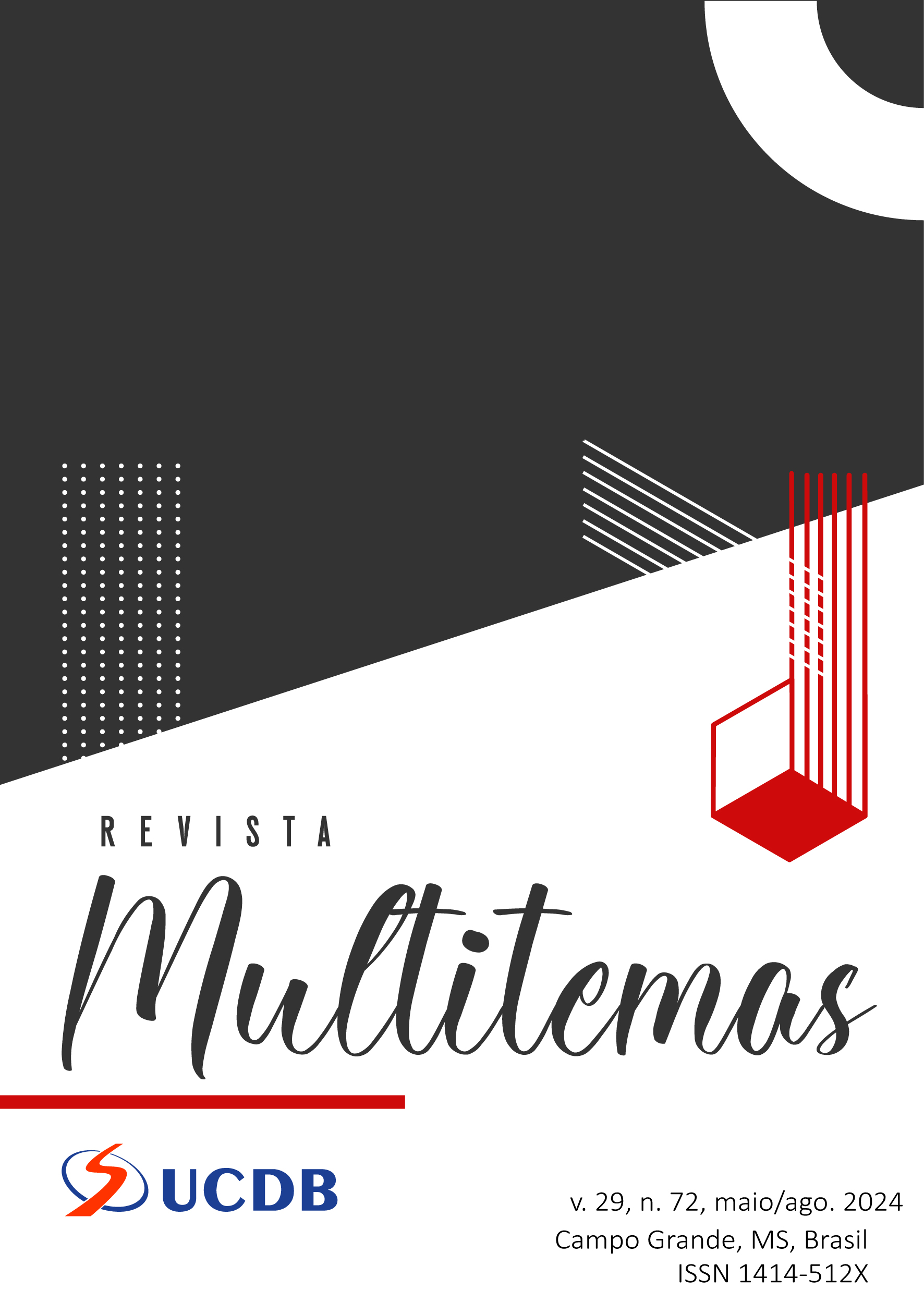Linguistic prejudice in portuguese language classes
DOI:
https://doi.org/10.20435/multi.v29i72.4155Keywords:
learning, normative grammar, linguistic prejudiceAbstract
The present article has as its theme the approach referring to the “Linguistic Prejudice in Portuguese Language Classes”, with the objective of researching how common it is to witness cases of prejudice with the language in the classroom. In order to show the influence of society and the role of the school regarding linguistic prejudice, it is therefore necessary to note that the Portuguese language is not based only on normative grammar, it must also be observed that linguistic prejudice affects learning of the student. This study is carried out through bibliographic research. Therefore, it is possible to verify that many remain trapped in the myth that the most difficult language is the most beautiful and the most correct, and only educated people speak this dialect.
References
ANTUNES, I. Língua e cidadania: repercussões para o ensino. In: ANTUNES, I. Língua, texto e ensino: outra escola possível. São Paulo: Parábola, 2009.
ANTUNES, I. A língua e a identidade cultural de um povo. In: ANTUNES, I. Língua, texto e ensino: outra escola possível. São Paulo: Parábola, 2003.
BAGNO, M. Não é errado falar assim! em defesa do português Brasileiro. São Paulo: Parábola Editorial, 2008.
BAGNO, M. Preconceito Linguístico: o que é, como se faz. 49. ed. São Paulo: Edições Loyola, 2007.
BAGNO, M. Preconceito Linguístico: o que é, como se faz. São Paulo: Edições Loyola, 1999.
BAGNO, M. A língua de Eulália: novela sociolinguística. São Paulo: Editora Contexto, 1997.
BECHARA, E. Ensino da gramática: Opressão? Liberdade? São Paulo: Editora Ática, 1993.
BORTONI-RICARDO, S. M. O professor pesquisador- Introdução à pesquisa qualitativa. 2. ed. São Paulo: Parábola Editorial, 2009.
BORTONI-RICARDO, S. M. Nós cheguemu na escola, e agora? Sociolingüística & Educação. São Paulo: Parábola Editorial, 2005.
BORTONI-RICARDO, S. M. Educação em língua materna: a sociolinguística na sala de aula. 3. ed. São Paulo: Parábola Editorial, 2004.
BRASIL. Secretaria de Educação Fundamental. Parâmetros curriculares nacionais: terceiro e quarto ciclos do ensino fundamental: língua portuguesa. Brasília, DF: MEC/SEF, 1998.
CASTILHO, A. T. A língua falada no ensino de português. São Paulo: Editora Contexto, 1998.
FREIRE, P. Pedagogia do Oprimido. 41. ed. Rio de Janeiro: Paz e Terra, 2005.
LABOV, W. Sociolinguística: uma entrevista com William Labov. Revista virtual de estudos da linguagem, [s. l.], v. 5, n. 9, 2007. Disponível em: www.revel.inf.br. Acesso em: 9 ago.
LIMA, A. N. Preconceito Linguístico: relação com o ensino-aprendizagem da língua portuguesa. 2021. TCC (Licenciatura em Letras) - Curso de Licenciatura em Letras, Centro Universitário Internacional Uninter, 2021. Disponível em: https://repositorio.uninter.com/handle/1/636. Acesso em: 19 set. 2024.
MATTOS E SILVA, R. V. Tradição gramatical e gramática tradicional. São Paulo: Contexto, 1989.
PARANÁ. Sistema Estadual de Ensino do Paraná. Referencial curricular paranaense para o novo ensino médio – versão preliminar (4). Curitiba: CEE, 2021.
PERINI, M. A. Sofrendo a gramática. São Paulo: Editora Ática, 1997.
POSSENTI, S. Porque (não) ensinar gramática na escola. Campinas: Coleção Leituras no Brasil, 1996.
SACRISTÁN, J. G.; GÓMEZ, A. I. P. Compreender e transformar o ensino. 4. ed. Porto Alegre: ArtMed, 1998.
SCHERRE, M. O preconceito linguístico deveria ser crime. Galileu, São Paulo, 2016.
SOARES, M. Linguagem e escola: uma perspectiva social. São Paulo: Editora Contexto, 1986.
Downloads
Published
How to Cite
Issue
Section
License
Copyright (c) 2023 Behatryz Fernanda de Souza Soares, Maria Fernanda Borges Daniel de Alencastro

This work is licensed under a Creative Commons Attribution 4.0 International License.
Os artigos publicados na Revista Multitemas têm acesso aberto (Open Access) sob a licença Creative Commons Attribution, que permite uso, distribuição e reprodução em qualquer meio, sem restrições desde que o trabalho original seja corretamente citado.
Direitos Autorais para artigos publicados nesta revista são do autor, com direitos de primeira publicação para a revista. Em virtude de aparecerem nesta revista de acesso público, os artigos são de uso gratuito, com atribuições próprias, em aplicações educacionais e não-comerciais.


